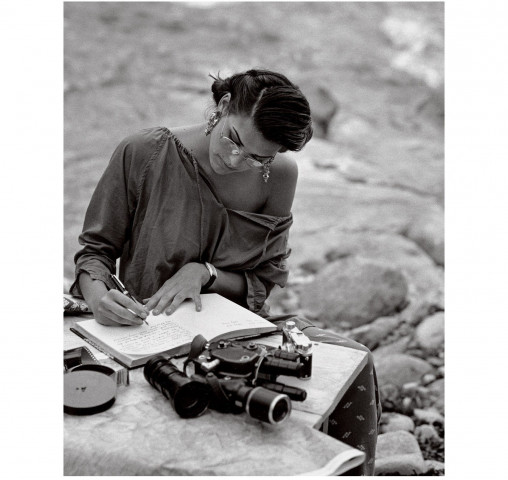Activist gets Oxford dictionary's 'sexist' definition of a 'woman' changed
It took her almost two years but the dictionary finally made amends in November 2020

It is to an Italian-born activist, Maria Beatrice Giovanardi, that we owe our gratitude to today for getting the sexist definition of a 'woman' changed in the Oxford dictionary.
Giovanardi, who lives in London and heads marketing at a non-profit foundation, in a recent interview with the British Vogue said, “I’ve been an activist since I was around 20-years-old.”
“It’s going to sound cliché but… I’d gone from living in Miami for five years to then living in India, and I was shocked to see the lack of women’s and human rights. I was also shocked by my own level of privilege. I didn’t realise how privileged I was, because I was always around people like me," the outlet quoted her as saying.
She then revealed that in the midst of an online research at the start of 2019, she started looking up synonyms for the word ‘woman’. “That’s when I first read the list of synonyms, like ‘piece’, ‘bint’, ‘baggage’ and ‘b****’."
She recalled how 80% of the terms were extremely derogatory, especially the expletive 'b****'. “I was mad because I think it can be a trigger for women,” she explained. “But the other words, I thought: why are they there? A lot of the listed examples of how to use the synonym in a sentence were very sexist, too," she pointed out. Giovanardi then sent these synonyms and the word's usage in sentences to her friends and fellow activists, leaving them baffled all the same.
While the Oxford Dictionaries’ usage of the word 'woman' in sentences read, “Ms September will embody the professional yet sexy career woman," and “male fisherfolk who take their catch home for the little woman to gut."
Deciding to take matters into her own hands, Giovanardi wrote letters questioning the dictionary entry, but says no one got back to her. Then in June 2019, she wrote an essay for Medium explaining why it was imperative that the current dictionary's definition for “woman” be changed. By the end of the month, she had launched a petition that caught the attention of the Guardian.
“I’m so grateful to the Guardian,” said Giovanardi. “By the third day we had like 150 signatures, but they published a double-page spread in print. It gave so much authority to the campaign and really explained the issue.” The petition called for all definitions and phrases that “discriminate and patronise” or “connote men’s ownership” of women to be removed. It also demanded that examples included lesbian and transgender women, too.
So by August, the petition had tens of thousands of signatures and a critical moment for the campaign arrived on International Women’s Day in March 2020. This is when an open letter was published with Women’s Aid and the leaders of the Women’s Equality party on board, too. “B**** is not a synonym for woman. It is dehumanising to call a woman a b****. It is but one sad, albeit extremely damaging, example of everyday sexism. And that should be explained clearly in the dictionary entry used to describe us,” it read.
The next day, the Oxford University Press (OUP) promised to change the definition, but before they could even say 'wo', Covid-19 hit, bringing the world to a standstill.
Determined, Giovanardi did not give up. She hounded them and by September she had gotten really angry, she recalled, once again demanding that the definition be changed. With over 30,000 signatures on the petition, enter November with a good news.
That's right! The definition changed. The amendments included the acknowledgement that a woman can be “a person’s wife, girlfriend, or female lover”, rather than only a man’s. The same gender-neutral terminology has now been applied to the definition of the word 'man'.
Sadly, however, the words “bint” and “b****” are still listed as synonyms for a 'woman'. But have been labled 'offensive', 'derogatory', or 'dated'.
An OUP spokesperson also explained that their dictionaries “reflect, rather than dictate, how language is used. This is driven solely by evidence of how real people use English in their daily lives.”
During the campaign, Giovanardi recalled men telling her she was crazy for demanding change, but she likened the naysaying to 'dogs barking'.
Have something to add to the story? Share it in the comments below.



















COMMENTS
Comments are moderated and generally will be posted if they are on-topic and not abusive.
For more information, please see our Comments FAQ